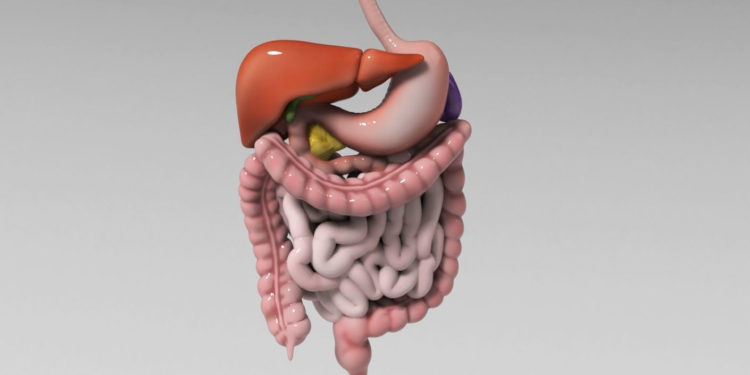Ailments affecting the gastrointestinal (GI) tract are referred to as gastrointestinal disorders; examples of these include irritable bowel syndrome (IBS). What distinguishing signs and symptoms do GI diseases have from one another, and how do they impact women differently than men? In this post, we’ll explain the critical function of your gastrointestinal tract (GI) system in your general health and offer advice on the spot symptoms of digestive system disorders.
Gastrointestinal Disorders: What Are They?
The gastrointestinal (GI) tract is a special group of organs that work together to help you absorb and use nutrients from meals and expel waste. The tract terminates at the anus and starts from the mouth. When the digestive system is functioning well, people experience several good signs, such as the following:
- dependable energy
- regular and painless bowel motions
- Appropriate responses to eating Appropriate responses to stress Normal gas and bloating
However, underlying medical conditions in the digestive system’s organs can cause many symptoms. Some of these symptoms are Heartburn, bloating, vomiting, diarrhoea, nausea, discomfort, and pain in the abdomen.
Dubai gastroenterologist have several tools at their disposal to assess the severity of a patient’s condition. Patients should be aware of how gender or sex may influence the course of GI disorders or how they affect a person’s quality of life.
Typical Intestinal Conditions in Women
Given that GI problems can impact men and women differently, it’s critical to recognize the signs of both common GI ailments and more serious disorders. This information can enable people experiencing digestive problems to seek assistance from a gastroenterologist, a specialist in treating disorders of the digestive system, or to modify their lifestyle as necessary. The gastrointestinal problems listed below, which can affect both men and women, include haemorrhoids, constipation, and irritable bowel syndrome.
Constipation
This happens when someone can’t pass the faces or has irregular bowel motions. Certain drugs, such as opioids or iron supplements, might cause constipation. Surgery may also be the cause of it, such as a caesarean section for a woman. In these cases, anaesthesia and painkillers can both slow back the digestive tract, which might result in constipation.
Constipation, however, is frequently brought on by a deficiency of fiber in the stool. Consuming more fibrous meals, such as whole grains and green, leafy vegetables, can lower a person’s chance of being constipated. Consuming fruits, nuts, legumes, and lots of water lowers your chance of constipation. Living an active lifestyle and eating a high-fiber diet will help lower your chance of getting chronic illnesses like diabetes. Stool softeners can help relieve occasional or transient constipation and help avoid developing secondary problems, including haemorrhoids.
Haemorrhoids
Haemorrhoids are a common condition that both men and women experience, but women are more likely to get haemorrhoids during pregnancy. The main cause of the disease is persistently a great deal of pressure in the pelvic region or anus. This might cause swelling or inflammation of the bloodstream vessels in the anus, which would hurt. Furthermore, obesity may make the issue worse. A diet higher in fiber can help both men and women lower their risk of haemorrhoids. If you are constipated all the time, stool softeners might help ease the symptoms. Only in situations when haemorrhoids get painfully big may surgery be necessary. Both men and women need to report recurrent haemorrhoids or other associated gastrointestinal (GI) problems to the best gastroenterologist and seek alternative therapies as needed. This is because the common GI disorder may conceal underlying issues like colon or rectal cancer. Depending on their severity, haemorrhoids can be treated with either ligation or infrared coagulation (IRC).
Irritable bowel syndrome
Constant episodes of diarrhoea and constipation, or persistent alterations in bowel habits, are a prominent feature of this condition that affects equally men and women. Constipation, diarrhoea, and excruciating or incapacitating stomach discomfort are the typical symptoms. IBS symptoms can be exacerbated or brought on by stress in both men and women. Long-term symptoms may result from this, making it difficult for the person to engage in private and professional activities.
How Does Lifestyle Affect Gastrointestinal Health?
In its constant quest to provide the human body with the nourishment it requires for survival and growth, the digestive system’s gastrointestinal (GI) tract encounters food particles, environmental toxins, and possible infections. It is important to maintain a robust and healthy digestive system to support general wellness and GI health and promote nutrient absorption and a robust and diversified microbiome.
It’s not always possible for humans to optimize their digestive processes. In 2010, 48.3 thousand visits to emergency rooms, hospital physician’s offices, and office-based physicians nationwide were due to digestive disorders.1-2 during their visit, the majority of these individuals were diagnosed with stomach disorders.1.
When to Consult a Physician
Various circumstances can cause common GI tract issues, but it’s crucial to see your doctor if your symptoms are severe or persistent. The doctors at the top hospital in dubai are skilled in identifying anomalies in the digestive system and can assist you in resolving these issues. Gastroenterologists not only prescribe dietary and lifestyle modifications, but they also create treatment regimens for patients with gastrointestinal problems. For example, haemorrhoids can be treated with infrared coagulation (IRC) & ligation, while capsule endoscopy lets medical professionals see within your small intestine.
Are you worried about how your digestive system is doing? Make a scheduled visit at one of our handy locations. If you’ve had experiences similar to those covered in this article, you would want to speak with a gastroenterologist. Contact us.













































































